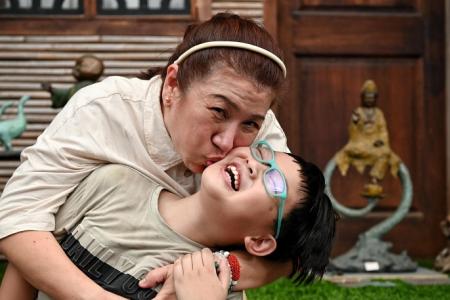More women in Singapore aged 50 and above having babies
The boundary of motherhood has shifted over the past few years as more women aged 50 and above are having babies.
In 2023, 19 women aged 50 or older gave birth, three of whom were at least 55 years old then, according to the Immigration and Checkpoints Authority’s annual report.
Between 1989 and 2009, six women aged 50 or older had babies. This number increased more than five times between 2010 and 2019, with 33 such women giving birth to 41 babies.
Among the 33 women was a 58-year-old who had twins in 2016. She is believed to be Singapore’s oldest woman to give birth.
The most well-known woman in Singapore to have a baby at the age of 50 or older is veteran actress and getai singer Liu Lingling.
She underwent in-vitro fertilisation treatment and gave birth to her son Caleb in 2013 at the age of 50.
Other celebrities who had babies after turning 50 include singer Janet Jackson, who was 50 when she had her son Eissa in January 2017; model Naomi Campbell, who was 53 when she had her son in June 2023; and actress Cameron Diaz, who was 51 when she welcomed her second child, a boy named Cardinal, in March 2024.
Liu revealed in a television interview in 2022 that she had high blood pressure, high cholesterol and high blood sugar during pregnancy – all of which made it dangerous for her to give birth.
Obstetrician and gynaecologist Christopher Chong said that what Liu experienced is typical of the risks for an older woman carrying a pregnancy.
“As a woman ages, the number and quality of her eggs decline, making it increasingly difficult for her to conceive a child. Once a woman hits 50, her chances of conceiving naturally are around 1 per cent. This means only one in 100 women at that age and older will succeed in having a baby without fertility treatments,” he said.
“For these older mothers, there would be increased risks of miscarriage, premature birth, foetal abnormalities and intra-uterine growth restriction (when a baby in the womb does not grow at the expected rate).”
During the birth, said Dr Chong, there would also be increased risks of caesarean section delivery; amniotic fluid embolism, which is a severe allergic reaction to amniotic fluid getting into the bloodstream; and mother and child trauma.
Get The New Paper on your phone with the free TNP app. Download from the Apple App Store or Google Play Store now

